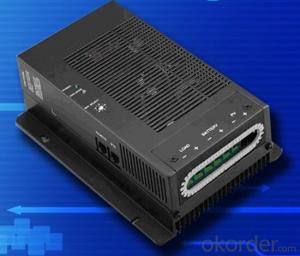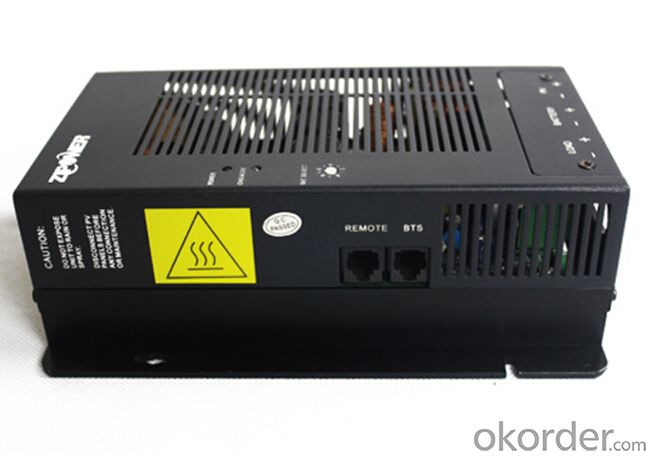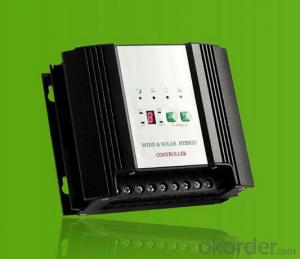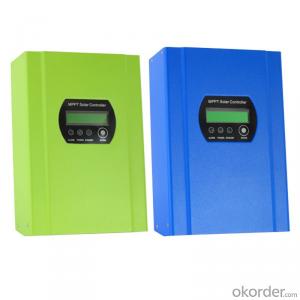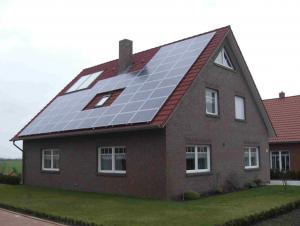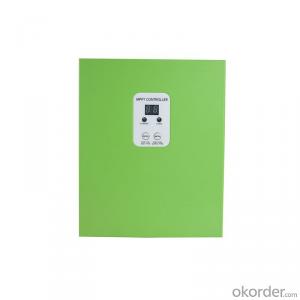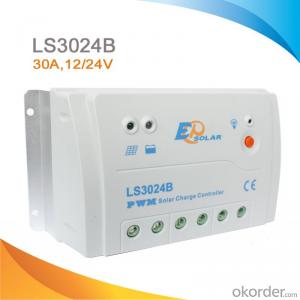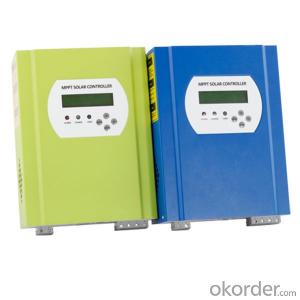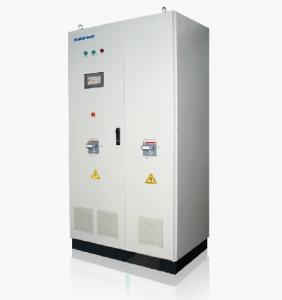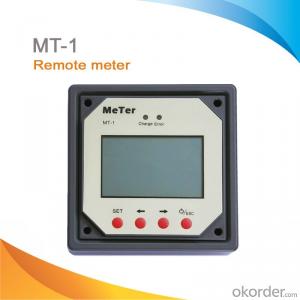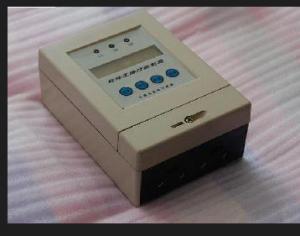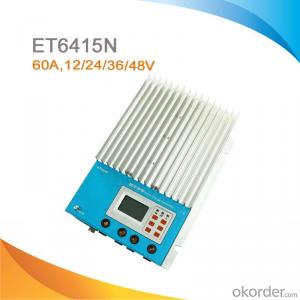Grape Solar PWM Controllers - Solar Charge Controller 12/24V Model SL-40A MPPT
- Loading Port:
- Shekou
- Payment Terms:
- TT OR LC
- Min Order Qty:
- 20 pc
- Supply Capability:
- 300 pc/month
OKorder Service Pledge
OKorder Financial Service
You Might Also Like
1. Structure of Solar Charge Controller 12/24v Model SL-40A MPPT
Solar charge controller 12/24V Model SL-40A MPPT adopts advanced MCU microprocessor control technology and MPPT technology. And 12V/24V can detect by itself to choose output voltage. It is mainly used for solar power station, home solar power system, solar street light control system,mobile solar system.
2. Main Features of Solar Charge Controller 12/24v Model SL-40A MPPT
High converting efficiency higher than 97%for minimizing energy loss
Build-in MPPT tracker for optimizing the power transformation
Reversed current protection for preventing equipment damage
Automatic battery temperature compensation for long-term reliability
Capable of selecting different charging mode for various type of batteries
Capable of connecting additional DC load for wider applications
Three stage charge control system(bulk,absorption, and float mode)with temperaturecompensation
LED indicators display charge status in real time
Pulse width modulation(PWM)topology combined with a multi-stage charge control algorithm leads to superior charging and enhanced batteryperformance
3. Solar Charge Controller 12/24v Model SL-40A MPPT Images
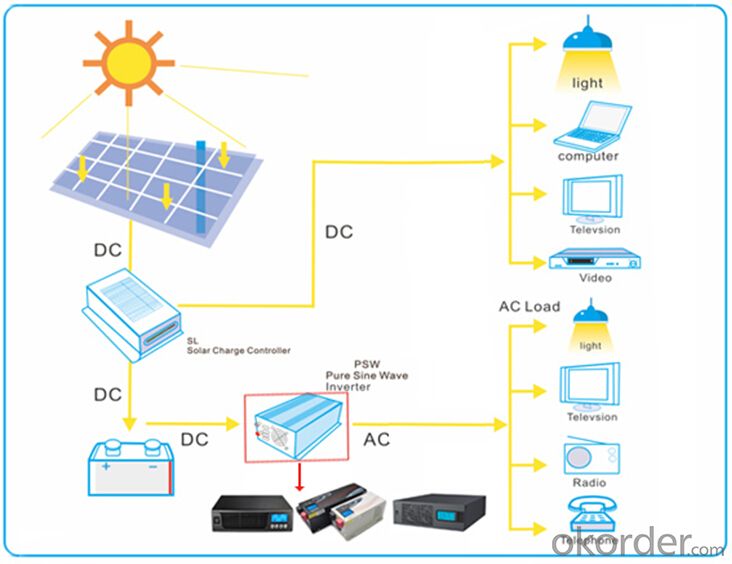
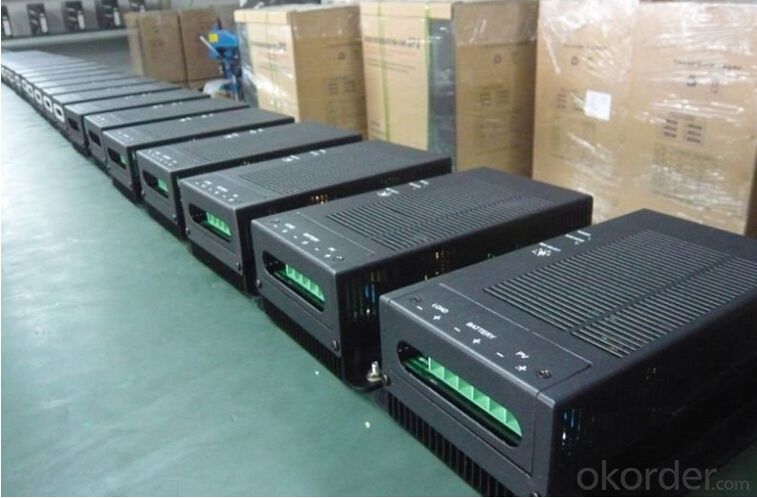
4. Solar Charge Controller 12/24v Model SL-40A MPPT Specification
| MODEL | SL-40A | |
| Rated Voltage | 12/24VDC | |
| Rated charge current | 40A | |
| Load current | 15A | |
| Input voltage rang | 15-55VDC | |
Max.PV open circuit array voltage | 55VD | |
| Typical idle consumption | <10mA | |
Overload protection (DC load) | 2.0*inom>5s 1.5*inom>20s 1.25*inom temperature controlled | |
| Bulk charge | 14.6V (default) | 29.2V (default) |
| Floating charge | 13.4V (default) | 26.8V (default) |
| Equalization charge | 14.0V (default) | 28.0V (default) |
| Over charge disconnection | 14.8V | 29.6V |
| Over charge recovery | 13.6V | 27.2V |
| Over discharge disconnection | 10.8V(default) | 21.6V(default) |
| Over discharge reconnection | 12.3V | 24.6V |
| Temperature compensation | -13.2mv/C | -26.4mv/C |
| Lead acid battery setting | Adjustable | |
| Nicad battery setting | Adjustable | |
Load control mode
| 1. Low Voltage Reconnect (LVR): Adjustable 2. Low Voltage Disconnect (LVR): Automatic Disconnection 3.Reconnection:Includes warning flash before disconnect and reconnect | |
| Low voltage reconnect | 12.0-14.0Vdc | 24.0-28.0Vdc |
| Low voltage disconnect | 10.5-12.5Vdc | 21.0-25.0Vdc |
| Ambient temperature | 0-40C (full load) 40-0C (de-rating) | |
| Altitude | Operating 5000m,Non-operating 16000m | |
| Protection class | IP21 | |
| Battery temperature sensor | BTS optional remote batter temperature sensor for increased charging precision | |
5. FAQ
Q1: How long do you need to prepare mass production?
Re: Normally we need 10-18days to finish the production, but it depends on the quantity of purchase order.
Q2: What kind of payment terms do you prefer?
Re: We prefer bank transfer or L/C,
- Q: What is the maximum current a solar controller can deliver to a load?
- The maximum current a solar controller can deliver to a load depends on the specifications of the controller itself. It varies from controller to controller, and can range anywhere from a few amps to several hundred amps, depending on the size and capacity of the controller.
- Q: What are the advantages of using a solar controller in a solar power system?
- The advantages of using a solar controller in a solar power system are that it helps regulate the charging and discharging of the batteries, protects them from overcharging and over-discharging, increases their lifespan, improves overall system efficiency, and provides detailed information and monitoring capabilities to ensure optimal performance.
- Q: Can a solar controller be used with solar-powered air quality monitoring stations?
- Solar-powered air quality monitoring stations can benefit greatly from the use of a solar controller. This crucial component is responsible for regulating the flow of electricity from the solar panels to the monitoring station, while also preventing the batteries from becoming overcharged. By connecting the solar panels to the station's power system, the solar controller ensures a consistent supply of clean energy to power the various components, including the sensors and data loggers. As a result, these stations can continuously and sustainably monitor air quality without relying on grid power or frequent battery replacements. For optimal performance and reliable operation, it is highly recommended to incorporate a solar controller into solar-powered air quality monitoring stations.
- Q: Can a solar controller be used with solar panels that are connected to a solar telecommunications system?
- Yes, a solar controller can be used with solar panels that are connected to a solar telecommunications system. A solar controller, also known as a charge controller, is an essential component in any solar power system. Its main function is to regulate the flow of electricity from the solar panels to the battery bank, ensuring that the batteries are charged efficiently and safely. In the case of a solar telecommunications system, where solar panels are used to power communication devices, a solar controller is even more important. It helps to protect the batteries from overcharging, which can damage the batteries and reduce their lifespan. Additionally, a solar controller can also prevent reverse current flow from the batteries to the solar panels during periods of low or no sunlight, which can also damage the panels. By using a solar controller, the solar panels in a telecommunications system can operate at their maximum efficiency, while the batteries are charged and maintained properly. This not only ensures reliable power supply for the telecommunication equipment but also extends the lifespan of the entire system. Therefore, it is highly recommended to use a solar controller in conjunction with solar panels that are connected to a solar telecommunications system to optimize the performance and longevity of the system.
- Q: Can a solar controller be used in conjunction with a power inverter?
- When used together, a solar controller and a power inverter can optimize the charging of a battery from a solar panel while converting the stored DC power into AC power for household appliances or electrical devices. This combination enhances the efficiency and reliability of the system by ensuring optimal battery charging through the solar controller and providing necessary AC power through the power inverter. To guarantee compatibility, it is crucial to verify the suitability of the solar controller and power inverter for each other. Further, following proper installation and wiring procedures is essential to ensure safe and effective system operation.
- Q: Can a solar controller be used with solar-powered air pollution monitoring stations?
- Solar-powered air pollution monitoring stations can utilize a solar controller, which is a device responsible for regulating the power and charging process of solar panels. Its primary function is to prevent overcharging or undercharging, thereby ensuring the batteries are efficiently and safely charged. In the case of these monitoring stations, solar panels generate electricity to power the equipment. To maintain optimal battery charging levels, a solar controller becomes essential. As batteries store the generated energy, a solar controller guarantees continuous power supply during low sunlight periods or at night. By incorporating a solar controller, these stations can efficiently operate in locations with fluctuating sunlight levels, ensuring reliable and uninterrupted functionality.
- Q: Can a solar controller be used in a mobile solar system (e.g., RV, boat)?
- Yes, a solar controller can be used in a mobile solar system such as an RV or boat. A solar controller helps regulate the charging process of the batteries and prevents overcharging, which is crucial in maintaining the health and longevity of the batteries in a mobile solar system.
- Q: Can a solar controller be used with solar panel tracking algorithms?
- Yes, a solar controller can be used with solar panel tracking algorithms. The solar controller is responsible for regulating the flow of electricity between the solar panels and batteries, ensuring optimal charging and preventing overcharging. By integrating a solar panel tracking algorithm, which adjusts the position of the solar panels to maximize sunlight exposure, the controller can enhance the efficiency and output of the solar system.
- Q: Can a solar controller be used with solar panels of different flexibilities?
- Yes, a solar controller can be used with solar panels of different flexibilities. The solar controller's main function is to regulate the flow of electricity between the solar panels and the battery or load. It does not depend on the flexibility of the panels, but rather on their voltage and current ratings. As long as the panels' electrical characteristics are compatible with the solar controller, they can be used together regardless of their flexibilities.
- Q: Can a solar controller be used in marine applications?
- The utilization of a solar controller in marine applications is indeed feasible. A solar controller, also referred to as a charge controller, plays a vital role in regulating the flow of electricity from solar panels to batteries. Its main function is to ensure the efficient charging of batteries while preventing any potential damage caused by overcharging. In marine scenarios, where a dependable and efficient power source is often required, solar panels offer a commendable alternative to conventional sources like generators or shore power. By harnessing the sun's energy, solar panels have the ability to generate electricity, making them highly suitable for boats or yachts that frequently venture out to sea. To guarantee the proper charging of batteries and optimal performance of solar panels, the presence of a solar controller is crucial in marine applications. Not only does it safeguard the batteries from the risks associated with overcharging, such as decreased battery lifespan and potential safety hazards, but it also ensures that the solar panels are functioning at their best. Moreover, modern solar controllers are specifically designed to endure the rigorous marine environment, which includes exposure to saltwater, humidity, and vibrations. They are typically constructed using corrosion-resistant materials and possess waterproof or weatherproof ratings to withstand these challenging conditions. To summarize, a solar controller can be effectively and safely utilized in marine applications, offering a reliable and environmentally friendly power source for boats, yachts, and other marine vessels.
Send your message to us
Grape Solar PWM Controllers - Solar Charge Controller 12/24V Model SL-40A MPPT
- Loading Port:
- Shekou
- Payment Terms:
- TT OR LC
- Min Order Qty:
- 20 pc
- Supply Capability:
- 300 pc/month
OKorder Service Pledge
OKorder Financial Service
Similar products
Hot products
Hot Searches
Related keywords
